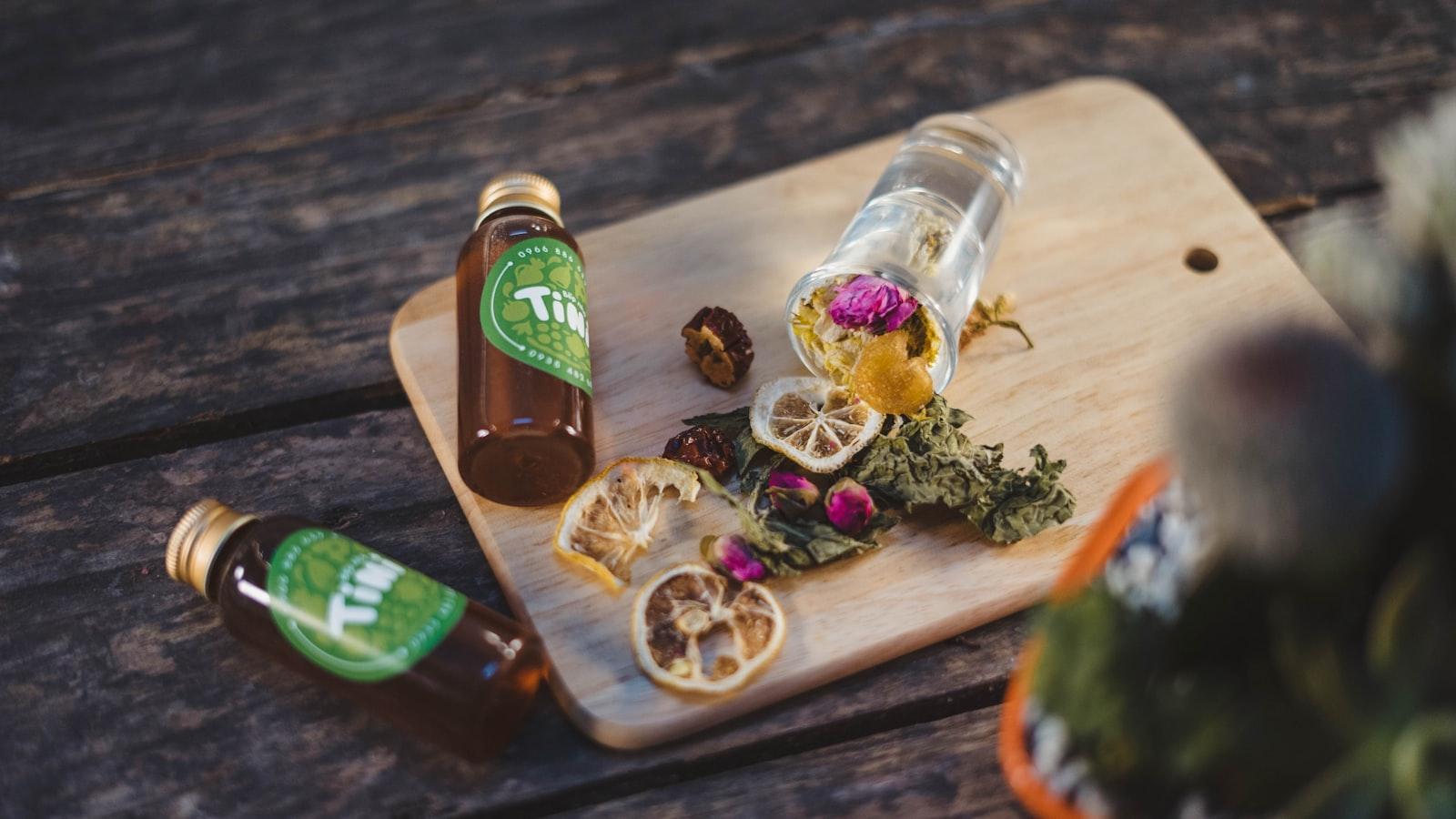Unlocking the secret wonders of a plant-powered diet, vegans and vegetarians gracefully embrace a lifestyle that champions sustainability and compassion. But amidst their triumphant journey towards a greener future, there lies a hidden concern that often lingers in the background – the elusive Vitamin B12. As these courageous souls strive to protect Mother Nature and her inhabitants, they might find solace in exploring alternative sources and supplements of this vital nutrient. In this article, we embark on a quest to demystify the mystique of Vitamin B12 for those who have willingly chosen a path less travelled by their taste buds. So, hold on tight, for we shall wander through meadows of knowledge, unearthing precious seeds of wisdom to nourish our ever-curious souls.
Vitamin B12 for Vegans and Vegetarians: Alternative Sources and Supplements
For vegans and vegetarians, obtaining enough Vitamin B12 can be a challenge, as this vital nutrient is mainly found in animal-based products. However, there are alternative sources and supplements that can help meet the recommended daily intake.
Alternative Sources:
- Fortified plant-based milk and yogurts: Some brands offer Vitamin B12-fortified versions of their products. Check the labels to ensure they contain adequate amounts.
- Nutritional yeast: This popular ingredient in vegan cooking is often fortified with Vitamin B12. Sprinkle it on your salads or incorporate it into your recipes.
- Tempeh and seaweed: While not as rich in Vitamin B12 as animal-based products, these plant-based foods can still contribute to your intake and provide other essential nutrients.
Supplements:
- Cyanocobalamin: This synthetic form of Vitamin B12 is commonly used in supplements and is suitable for vegans. It is affordable and widely available.
- Methylcobalamin: Another form of Vitamin B12 that is often found in supplements. It is believed to have better bioavailability than cyanocobalamin.
Remember, it’s important to consult with a healthcare professional before starting any new supplements. They can help determine the right dosage and ensure you’re meeting your nutritional needs as a vegan or vegetarian.
- Understanding the Importance of Vitamin B12 in a Plant-Based Diet
Vitamin B12 for Vegans and Vegetarians: Alternative Sources and Supplements
B12 is an essential vitamin that plays a crucial role in our overall health. While it is commonly found in animal products, such as meat, eggs, and dairy, it can be a challenge for vegans and vegetarians to ensure they are getting an adequate amount of this important nutrient in their diets. Understanding the importance of B12 for plant-based eaters is key to maintaining optimal health.
Alternative Sources: Even though plants do not naturally produce vitamin B12, there are a few plant-based foods that can be fortified with this nutrient. Some examples include:
- Nutritional Yeast: A popular option amongst vegans, nutritional yeast is often fortified with B12 and can be incorporated into various dishes to enhance the flavor.
- Plant-Based Milks: Certain brands of plant-based milks, such as almond, soy, and oat milk, may have B12 added to them. It is important to read the labels carefully to ensure fortified versions are selected.
- Cereals and Vegan Meat Substitutes: Many cereals and vegan meat substitutes can also be enriched with vitamin B12. Check the ingredient list or look for products specifically labeled as fortified.
Supplements: Taking B12 supplements is highly recommended for vegans and vegetarians to ensure a sufficient intake of this crucial vitamin. There are various options available, including:
- Tablets or Capsules: These are the most common forms of B12 supplements. They can easily be found in health stores or online, offering a simple and convenient way to meet your B12 needs.
- Sublingual or Chewable Supplements: For those who may have difficulty swallowing pills, sublingual or chewable B12 supplements are a great alternative. They dissolve under the tongue or in the mouth, bypassing the need to be digested.
- Sprays: B12 sprays are another option, where the vitamin is absorbed through the mucous membranes in the mouth. They are easy to use and may be suitable for individuals with digestive issues.

- Natural Sources of Vitamin B12 for Vegans and Vegetarians: Exploring Options
Natural Sources of Vitamin B12 for Vegans and Vegetarians: Exploring Options
As a vegan or vegetarian, ensuring you get enough Vitamin B12 is essential for maintaining optimal health. Although this vitamin is mainly found in animal-based products, there are several alternative sources that can help meet your dietary needs. Here, we’ll explore these options and provide you with an insight into how you can easily incorporate them into your daily routine.
Plant-Based Milk Alternatives: Many plant-based milks, such as soy, almond, and coconut milk, are fortified with essential nutrients, including Vitamin B12. By incorporating these milks into your diet, either by using them in cooking or as a dairy milk substitute, you can boost your intake of Vitamin B12. Additionally, these milks are often enriched with other vitamins and minerals, making them a valuable addition to your nutrition.
Nutritional Yeast: Nutritional yeast is a deactivated yeast that is often fortified with Vitamin B12. It has a cheesy, nutty flavor and can be used as a seasoning or ingredient in various dishes. Sprinkle some nutritional yeast on top of your salads, popcorn, or pasta to incorporate it into your meals. Not only does it add a savory taste, but it also provides you with an extra dose of Vitamin B12.
| Source | Vitamin B12 Content (per serving) |
|---|---|
| Nutritional Yeast (1 tablespoon) | 2.4 mcg |
| Soy Milk (1 cup) | 1.2 mcg |
| Almond Milk (1 cup) | 1.0 mcg |
Remember, it’s important to check the labels and opt for products that are fortified with Vitamin B12 to ensure you’re getting an adequate amount. In some cases, supplementation may also be necessary, especially if you’re following a strict vegan or vegetarian diet. Consulting with a healthcare professional or registered dietitian can help you determine the best course of action for your individual needs. By exploring these alternative sources and considering supplementation when needed, you can maintain a well-rounded diet and meet your Vitamin B12 requirements as a vegan or vegetarian.

– Choosing the Right Vitamin B12 Supplement: A Comprehensive Guide
Vitamin B12 is an essential nutrient that plays a crucial role in maintaining a healthy nervous system and producing DNA. For vegans and vegetarians, who exclude animal products from their diets, finding alternative sources of this vitamin can be challenging. Luckily, there are several plant-based options and supplements available to ensure adequate intake.
Sources of Vitamin B12 for Vegans and Vegetarians
While B12 is predominantly found in animal-based foods, there are some plant-based sources that can help vegans and vegetarians meet their B12 needs. Some common sources include:
- Nutritional Yeast: Also known as “nooch,” this savory powder is an excellent source of B12 and adds a cheesy flavor to dishes.
- Fortified Foods: Many plant-based milk alternatives, breakfast cereals, and meat substitutes are fortified with B12 to cater to vegan and vegetarian consumers.
- Algae and Seaweed: Certain types of seaweed and algae contain B12, but the absorption rate may vary.
- Mushrooms: Some varieties of mushrooms, like shiitake and white button mushrooms, contain small amounts of B12.
Despite these options, it is often recommended for vegans and vegetarians to consider taking a B12 supplement to ensure sufficient intake. Supplements can come in various forms, such as:
- Cyanocobalamin: This synthetic form of B12 is commonly used and has good bioavailability.
- Methylcobalamin: A more bioactive and easily absorbed form of B12 that may be preferable for some individuals.
- Injectable B12: In certain cases, individuals may need injections of B12 to address severe deficiencies or absorption issues.
- Sublingual B12: These supplements come in the form of tablets or sprays that dissolve under the tongue, allowing for direct absorption into the bloodstream.
With the wide range of options available, it’s essential for vegans and vegetarians to consult with a healthcare professional or registered dietitian to determine the right source and dosage of vitamin B12 that suits their specific needs.
Comparison of Different Vitamin B12 Supplements for Vegans and Vegetarians
| Supplement Type | Benefits | Considerations |
|---|---|---|
| Cyanocobalamin | – Cost-effective option – Widely available |
- Synthetic form |
| Methylcobalamin | – More bioavailable - Suitable for individuals with certain genetic variations |
– Typically more expensive |
| Injectable B12 | – Suitable for severe deficiencies or absorption issues | – Requires medical supervision |
| Sublingual B12 | – Convenient administration - Direct absorption into the bloodstream |
– May interact with certain medications |
Remember, vitamin B12 plays a vital role in maintaining overall health and well-being, so it’s crucial for vegans and vegetarians to prioritize their intake through a combination of food sources and appropriate supplements.

– Expert Recommendations for Vegans and Vegetarians: Ensuring Adequate Vitamin B12 Intake
Vitamin B12 for Vegans and Vegetarians: Alternative Sources and Supplements
Ensuring adequate intake of vitamin B12 is essential for maintaining a healthy vegan or vegetarian lifestyle. While this vitamin is predominantly found in animal products, there are several alternative sources and supplements that can help vegans and vegetarians meet their B12 needs. Here are some expert recommendations to help you incorporate this vital nutrient into your plant-based diet:
1. Fortified Foods: Many vegan and vegetarian foods are now fortified with B12, making them convenient options. Look for fortified plant-based milks, breakfast cereals, meat substitutes, and nutritional yeast. Check the labels for the exact amount of B12 provided per serving.
2. Nutritional Supplements: If you find it challenging to meet your B12 requirements through food alone, consider taking a daily B12 supplement. Choose a high-quality supplement with methylcobalamin or cyanocobalamin, as these are the most bioavailable forms of B12. It is advisable to consult a healthcare professional to determine the right dosage for your individual needs.
| Food Source | Vitamin B12 Content |
|---|---|
| 1 cup fortified almond milk | 1.1 mcg |
| 1 serving nutritional yeast | 2.4 mcg |
| 1 serving fortified cereal | 2.5 mcg |
| 1 tablespoon chia seeds | 0.2 mcg |
Please note: While certain plant-based foods may contain small amounts of B12, they may not provide an adequate daily intake. Therefore, it is important to regularly monitor your B12 levels through blood tests and adjust your diet or supplements accordingly. By being mindful of your dietary choices and incorporating alternative sources or supplements, you can ensure a sufficient intake of vitamin B12 and maintain optimal health as a vegan or vegetarian.
The Conclusion
As we conclude our exploration of the world of Vitamin B12 for vegans and vegetarians, one thing becomes abundantly clear: plant-based enthusiasts need not feel disheartened. While acquiring this essential nutrient may require a bit of extra attention, it does not have to be a daunting task.
Venturing on this path of mindful eating, we have unveiled a treasure trove of alternative sources teeming with Vitamin B12 goodness. From fortified plant-based milks to the earthy embrace of nutritional yeast, nature offers us a myriad of options to keep our bodies nourished.
Nonetheless, for those who prefer an extra layer of reassurance, supplements stand proudly as reliable allies. As we traverse the tapestry of customized nutrition, the supplement market has responded with an impressive array of vegan-friendly options. Trustworthy companions, they offer a convenient passport to ensure a healthy dose of Vitamin B12.
Let us remember that in a world driven by choice, knowledge empowers us to make informed decisions. Being aware of our nutritional needs and the available sources allows us to craft a well-rounded and balanced vegan or vegetarian lifestyle.
So, dear readers, as you embark on your journey towards optimum health and conscious eating, be mindful of the path you tread. Embrace the abundant selection of plant-based treasures, fortified with the very essence of Vitamin B12, while knowing that reliable supplements patiently await your embrace.
May you nourish both body and mind, and may your vibrant zest for life flourish under the nourishing shadow of Vitamin B12. As you venture forth, armed with this newfound knowledge, savor the limitless possibilities that the world of plant-based nutrition has to offer.
With open minds and curious hearts, let us bid adieu, until we meet again on our next quest for enlightenment, in the ever-evolving realm of conscious nutrition.


